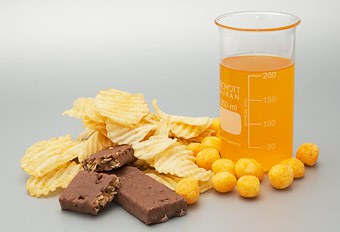By Elise Dalley
It’s versatile and cheap, prolongs the shelf life of products, and the crop grows quickly. So it’s no surprise that palm oil is an appealing ingredient to manufacturers of consumer goods, both edible and non-edible.
Despite these favourable traits, there is a dark side to palm oil. With only 14% of the oil produced globally certified through the Roundtable on Sustainable Palm Oil, environmental damage caused by deforestation is catastrophic. And with a saturated fat content of 51%, the health implications are just as dire – it’s very poor compared with other vegetable oils, such as canola (7.6%), sunflower (11.2%) and olive (16%).
Palm oil is the most consumed edible oil in the world, accounting for 33% of total production in 2009 (olive oil accounted for just two per cent). India was the largest consumer of palm oil in the world in 2009. With the country's consumption more than doubling from 2005 to 2009, its population’s obesity rates are growing alongside. According to the World Wildlife Fund, palm oil is present in about half the packaged products on Australian supermarket shelves – including everything from bread and biscuits to chips, chocolate and even personal care products such as shampoo. The Australian Food and Grocery Council estimates an even larger presence – about 80%.
However, you’d never know this as Food Standards Australia and New Zealand (FSANZ) allows palm oil to be labelled simply as vegetable oil.
Why no label?
In 2008, FSANZ was presented with a proposal to label palm oil by name for health and environmental reasons. However, it rejected the proposal, claiming environmental issues sat beyond its scope of regulation and that consumers concerned about the saturated fat content in palm oil could see this in the nutrition information panel of food labels. A private member’s bill, proposed by SA senator Nick Xenophon in 2010 to provide clear, accurate information about the inclusion of palm oil, was knocked back by the government, which estimated it would cost industry $150m and breach Australia’s World Trade Organization obligations.
In 2011, following a comprehensive review of food labelling, it was recommended that palm oil be specifically labelled. In response, FSANZ announced that the development of a technical evaluation and advice based on this recommendation would be a priority. Specific time frames for this project weren’t available at the time of publication


Comments
Previous reporting here on the horrific consequences of palm oil
http://www.indymedia.org.au/search/node/palm%20oil